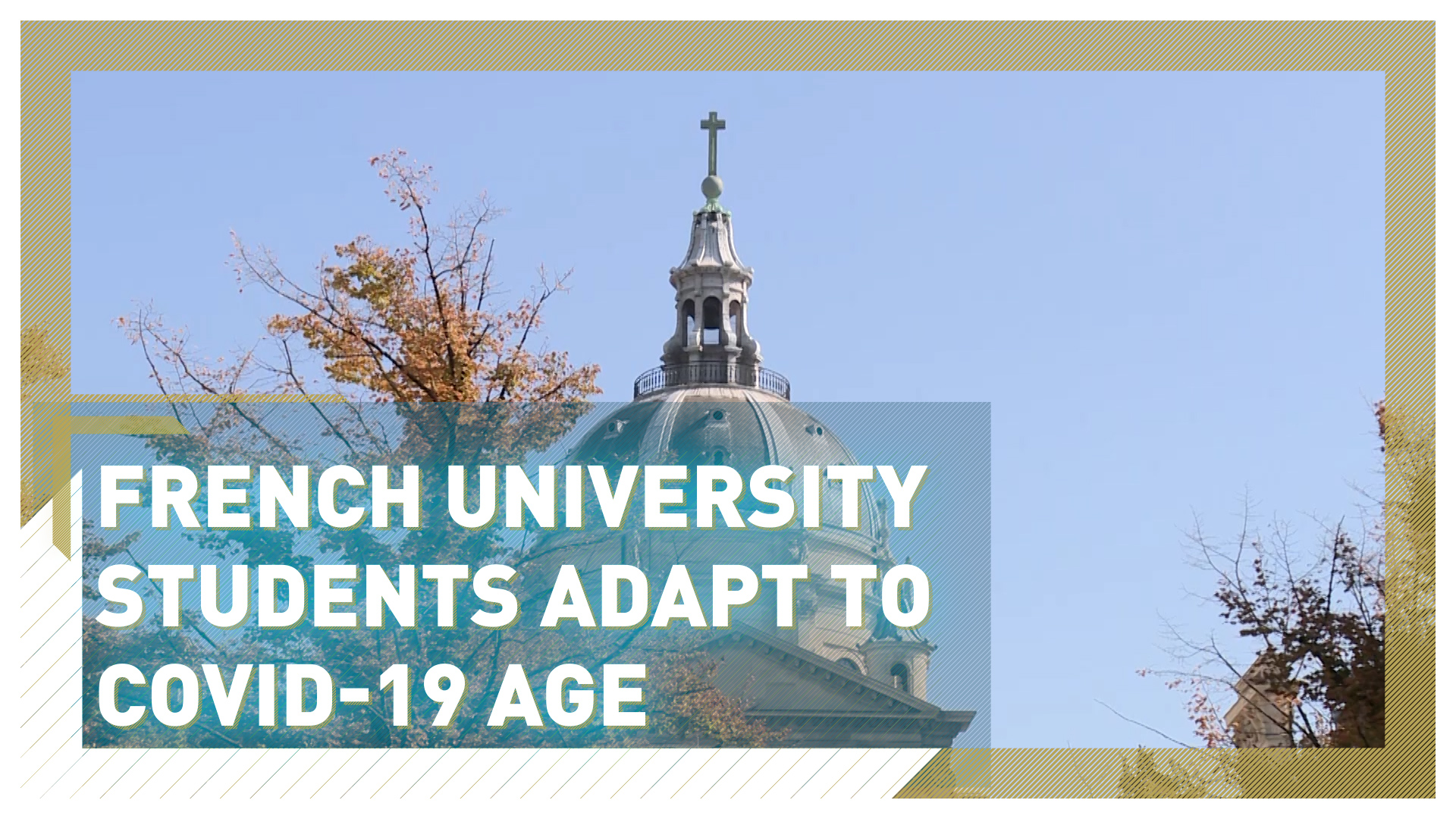02:25

Face masks are obligatory, there are separate entrances and exits on campus and many on-site facilities are restricted or closed. But despite a range of sanitary measures at universities in France, at least a dozen COVID-19 clusters have emerged since some classrooms re-opened earlier this month.
September marks the start of a new academic year and the French government says children and students should return to the classrooms again.
But in a post-lockdown France, where cases are surging again, lectures look and sound very different.
Pharmacology student Hichem Hadj tells CGTN Europe that "there is a lot of distancing between all the students, there are all these signs inside the lab to keep people away from each other."
"We can't go to the cafeteria together as we used to do before the outbreak, we can't sit together inside the lab. Sometimes, if we want to go and do something like drink a coffee we just do it in front of our computers and not all together as we used to do before."
In case you missed it:
• Caught between COVID-19 and their dream schools, Chinese students reconsider studying abroad
• 'Alarming rise in cases is a wake-up call for Europe,' says WHO
• A toned-down Oktoberfest kicks off in Munich amid COVID-19 safety regulations
Students and universities are adapting to working both on campus and online and learning in-person or learning by video call.
But it is life after university that many are beginning to worry about.
The pandemic means there are likely to be fewer jobs around next year.
"I hope the hybrid model with online classes will work," says Clara Demetz, a business student.
She tells CGTN Europe that "I don't want the school to close. We only have three months of classes left and then I have to look for an internship to graduate."
"My concern is more on finding this internship, it's going to be more difficult this year."
Students are back in their thousands and so are academic staff, who support the science-based government guidelines.
"We believe in science – this is what we do," Joav Toker, a university professor, tells CGTN Europe.
"We are astonished that in many parts of the world, in France also but in a very minor way, the priority is not what science says but what political considerations or other considerations might be and this might be really dangerous."

Maintaining social distancing in lecture theaters in French universities is a sometimes impossible task. /CGTN
Maintaining social distancing in lecture theaters in French universities is a sometimes impossible task. /CGTN
One problem that has arisen since the start of the year has been in corridors and lecture theaters. They cannot be made larger, so students are required to wear a face mask at all times.
But keeping a safe distance appears impossible in many places.
Another issue that university authorities are facing is the social side to university life.
While the thousands of students follow campus rules during the day, after hours they will socialize publicly and privately and there have been dozens of clusters of outbreaks in university towns already this month.
Check out our new six-part podcast series Notes on a Pandemic as CGTN Europe finds out how business, science and people have risen to the challenge of COVID-19.